On Thursday, a panel of the 11th US Circuit Court of Appeals handed Florida Governor Ron DeSantis a huge victory over Marc Elias, judicial overreach, and industrial strength stupidity. By a 2-1 decision, with an Obama judge dissenting, the panel upheld nearly all of Florida’s overhaul of voting rules in May 2021. I would call it controversial, but it was only controversial to people whose lives depend upon supporting vote fraud.
Background
In May 2021, the Florida legislature passed a major overhaul of state election law. The law’s goals were to make elections more transparent and trustworthy while outlawing known abuses of the system, particularly those abuses that came into being based on the whim of unelected officials and judges to allegedly allow the system to cope with an election during a pandemic.
These are bullet points that describe what the Florida law does.
- Under SB-90, voters can still request to vote-by-mail instead of voting in person. However, some changes are being made to the request process.
- Voters can submit a vote-by-mail application. It outlawed the mass mailing of ballots. All requests for ballots have to be accompanied by a Florida driver’s license number, ID number, or the last four digits of the applicant’s social security number.
- Drop boxes outside the permanent elections office must be located to give all voters an equal opportunity to use them. Drop boxes may only be used for early voting. They must be monitored by staff from the election supervisor’s office. Dropbox locations must be announced 30 days before an election and cannot be changed after that date. All boxes must be emptied by the end of voting hours each day.
- Convicted felons must check a box declaring their voting rights have been restored on the voter registration form.
- The state must create and maintain a secure website for online voter registration. In addition, there are risk management requirements that accompany this provision.
- All electronic devices and networks used for voting must be screened for vulnerabilities and protected from cyberattacks.
- Voter turnout data must be made available to the public in real time.
- Florida DMV must cooperate with the Florida Secretary of State’s office in tracking voter address changes.
- Third-party voter registration organizations must register with the state whether or not they distribute or collect voter registration applications.
- Applications collected by third-party organizations must be delivered to the appropriate county within 14 days. The groups must inform voters that they are a third-party organization and can’t guarantee that the applications will be delivered on time. If an application is not delivered on time, the organization must inform the voter how to register online, and the organization gets fined $50 per late application.
- The minimum distance for electioneering is increased from 100 feet to 150 feet.
- Anyone who wants to assist a voter in the polling place has to submit a “Declaration to Provide Assistance” in advance and must swear they are not engaged in electioneering and that they are neither the employer of the voter nor an agent of that employer.
- Contrary to many statements, you can provide water, etc., to voters in line; you just can’t talk to them about voting.
- Poll watchers will have a badge issued by the elections supervisor.
- All ballots, forms, and materials from the election must be retained for 22 months.
- All “duplicate” ballots created to replace damaged vote-by-mail ballots must be made in an open room with witnesses. Overvotes or undervotes that can’t be “corrected,” that is, cases where the voter seems to have intended to undervote or overvote, can’t be studied for “voter’s intent.” The accuracy of “duplicate” ballots can be challenged by observers resulting in the ballot being voted on by the canvassing board.
- Candidates must be registered members of the party whose nomination they seek for a year before the election.
- Candidates registering as independents must not have been party members for the past year.
- Voter certification on envelopes must be open to public inspection.
- Parties, candidates, and political action committees are entitled to see all voter certificates and envelopes before they are counted.
- Comparing voter signatures must be open to access and review.
- It is illegal for election boards to accept private donations of money, goods, or services to support an election.
- Written notice of any settlements, consent decrees, or orders that would modify state election law must be submitted to state authorities ten days before it is scheduled to go into effect.
- Officials have a positive duty to defend the state election law.
Full Text of SB90
Florida SB-90 Election Law … by streiff
We Can’t Have Clean Elections Because That Would Be Racist
Because all of this is common sense, it must be racist. And almost immediately upon Governor DeSantis signing the bill into law, Marc Elias’s Democracy Docket sued using the Democrat AstroTurf group, League of Women Voters (this is the kind of thing that can convince a feminist that the 19th Amendment was a bad idea) as a plaintiff.
The suit landed before Chief U.S. District Judge Mark Walker of the Northern District of Florida, who was appointed by Barack Obama. So despite Chief Justice John Roberts getting the heebie-jeebies whenever someone comments on who appointed a judge to the bench, that does make a difference.
Obama Judge to the Rescue
Judge Walker delivered the goods.
Chief U.S. District Judge Mark Walker, in a blistering 288-page decision, said the law placed restrictions on voters that were unconstitutional and discriminated against minority citizens. Those included limits on drop boxes used for mail-in voting, on giving items to voters waiting in line and new requirements placed on voter registration groups.
…
“At some point, when the Florida Legislature passes law after law disproportionately burdening Black voters, this court can no longer accept that the effect is incidental,” Walker wrote. “Based on the indisputable pattern set out above, this court finds that, in the past 20 years, Florida has repeatedly sought to make voting tougher for Black voters because of their propensity to favor Democratic candidates. In summation, Florida has a horrendous history of racial discrimination in voting.”
…
The judge’s decision placed a permanent injunction on several parts of the new law, such as restrictions on when drop boxes could be used by local election officials. As part of the order, the judge also put in a preclearance requirement if legislators want to change laws regarding voter registration organizations, drop boxes or so called “line warming” activities with voters waiting to cast ballots at the polls.
By “preclearance requirement,” Judge Walker required, in the absence of any authority to do so, that if the Florida legislature changed any part of the election law in the next ten years, they had to go and request Walker’s permission in advance. As the Washington Post noted at the time, Walker used the SB90 case to attack the Supreme Court for sh**canning the “preclearance” requirements imposed on Florida and some other jurisdictions by Section 4 of the Civil Rights Act.
What Walker did was use the Florida law as a vehicle for attacking the Supreme Court’s jurisprudence. He makes it clear that he thinks the Supreme Court has betrayed the Constitution by giving legislatures the right to make laws.
Even if fleeting, Judge Walker’s decision represents one of the most aggressive legal broadsides against Republicans in the heated voting rights battles that have followed President Donald J. Trump’s defeat in the 2020 election. The ruling also comes as Democrats and their allies pursue an uphill legal strategy, relying on federal voting protections diminished by the Supreme Court.
In his decision, Judge Walker castigated previous Supreme Court rulings on voting issues and essentially dared the justices to overturn his decision.
“Without explaining itself, the court has allowed its wholly judge-made prudential rule to trump some of our most precious constitutional rights,” the judge wrote.
Galactic Commander Judge Walker’s Decision
League of Women Voters vs Lee by streiff
Off to a Real Court
Governor DeSantis immediately appealed to the Eleventh Circuit. The Eleventh Circuit granted Florida an injunction against Walker’s bizarre ruling because an election was imminent. The order granting the injunction ominously noted that “we find the district court’s historical-background analysis to be problematic” and “the district court failed to properly account for what might be called the presumption of legislative good faith.”
Today, that court delivered a death blow to Walker’s delusions of grandeur.
Eleventh Circuit Decision
The only thing the Eleventh Circuit didn’t do with Walker’s ruling was roll it up and stick it in his eye.
US District Judge Mark Walker’s ruling, the appeals court said Thursday, was legally and factually flawed. The 11th Circuit also reversed a holding by Walker that would have required Florida to seek federal approval for any future election rule changes that are similar to the provisions he had struck down.
The 11th Circuit, however, did agree with the lower court that one of the challenged provisions of the 2021 law – which banned the “solicitation” of voters within 150 feet of a polling place – was unconstitutionally vague.
…
Writing for the 11th Circuit panel majority, Circuit Judge William Pryor took issue with the trial judge’s conclusions that, by passing new election rules that targeted voters who tend to vote Democratic, the Florida Legislature was also targeting voters – and specifically voters of color – by race.
“To be sure, as the organizations point out, ‘[intentionally] targeting a particular race’s access to the franchise because its members vote for a particular party’ is impermissible,” Pryor wrote, referring to the voting rights groups that had challenged the provisions in court. “But we must be careful not to infer that racial targeting is, in fact, occurring based solely on evidence of partisanship. Evidence of race-based discrimination is necessary to establish a constitutional violation.”
League of Women Voters vs. Florida Secretary of State by streiff on Scribd
Good News and Bad News
The good news for Governor DeSantis is that a law that makes voting in Florida more transparent and less subject to fraud has been defended. The bad news is that Judge Walker will hear the upcoming suit by Disney over Governor DeSantis dismantling Disney’s magic kingdom at Reedy Creek; Disney Sues Ron DeSantis, Claiming ‘Targeted Campaign’ of Government Retaliation.
The opinions expressed by contributors are their own and do not necessarily represent the views of RedState.com.
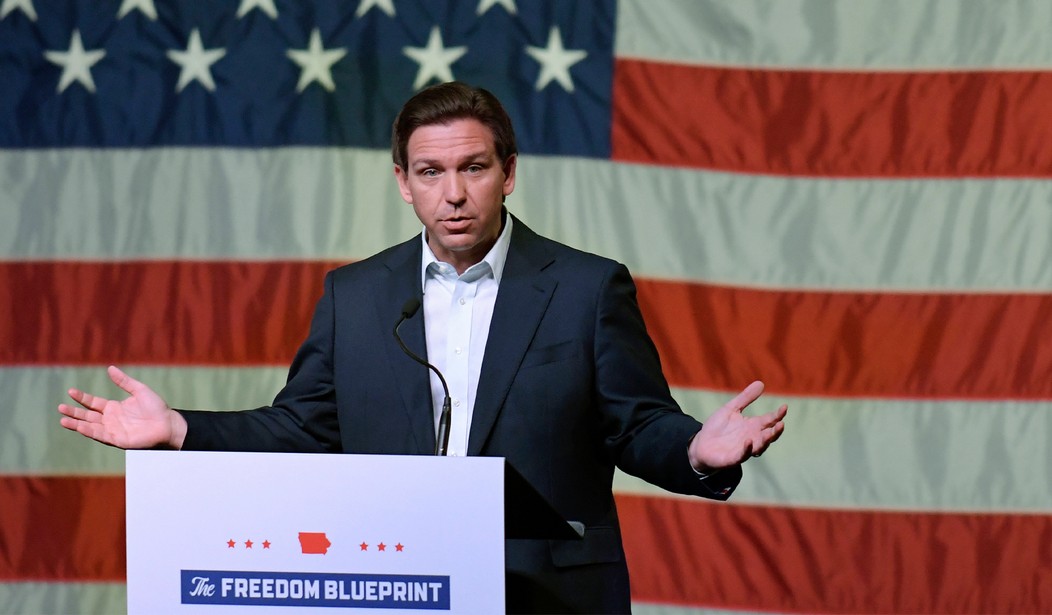

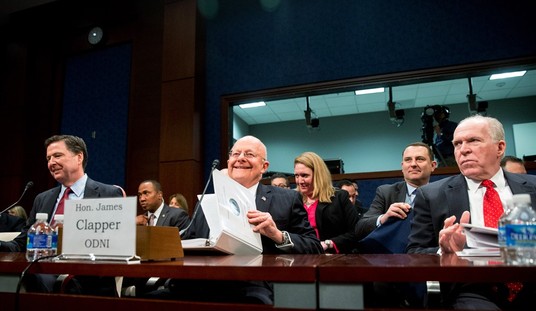
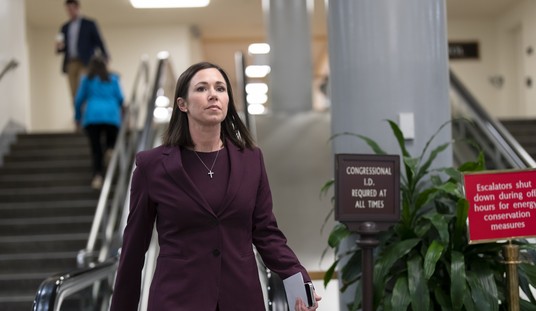
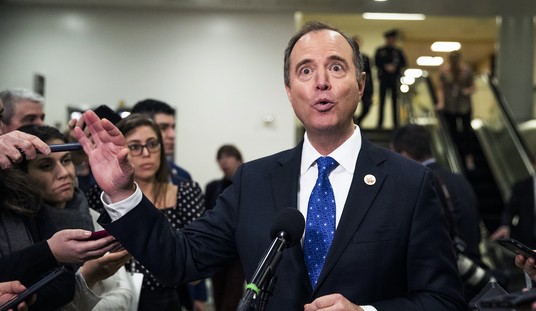








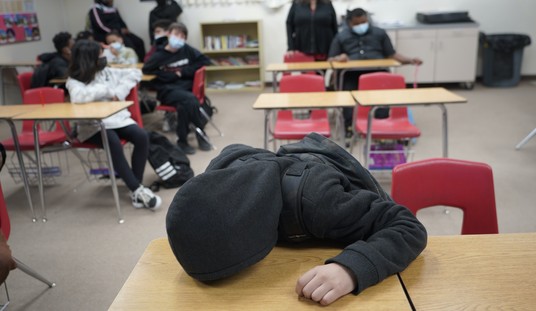
Join the conversation as a VIP Member